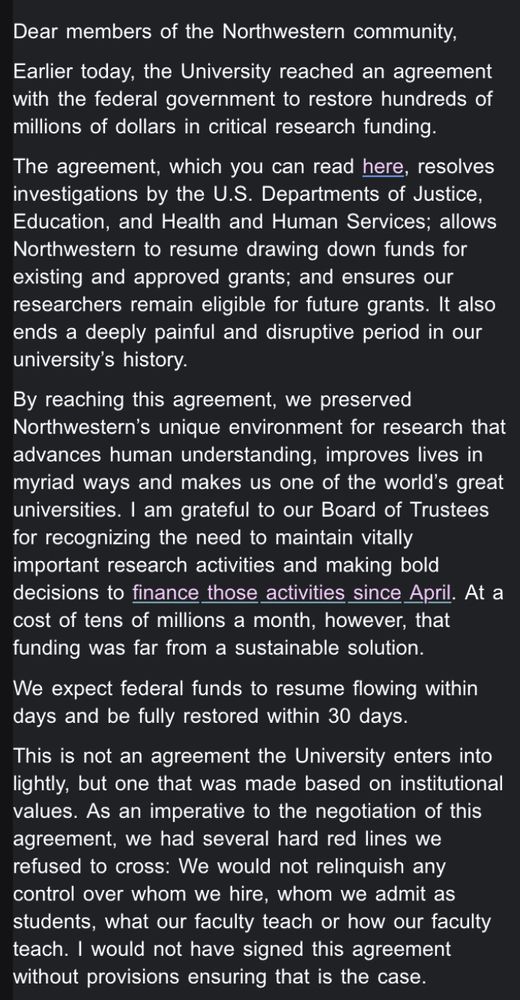
Escrevo, pesquiso, entre outras coisas. Livro mais recente: "Ilícito absoluto: a família Almeida Teles, o coronel C. A. Brilhante Ustra e a tortura" (Patuá, 2023). Sítio: https://opalcoeomundo.blogspot.com/


Reposted by Pádua Fernandes
Reposted by Anna O. Law, Matthew Bunn, Brendan Nyhan , and 21 more Anna O. Law, Matthew Bunn, Brendan Nyhan, Gavin A. Schmidt, Tom Clark, Scott L. Greer, Mark D. White, Rosemary A. Joyce, David Rothschild, American Library Association, Janet Murray, Michael W. Kraus, David R. Miller, Adrian Daub, James Goodwin, Brian Keegan, Pádua Fernandes, Annette Yoshiko Reed, Stella M. Rouse, Nathan P. Kalmoe, David R. Shumway, Élisabeth Vallet, Sofya Aptekar, Kristina McElheran




Full statement from NU below:
Reposted by Pádua Fernandes

"Opinião - Txai Suruí: PL da Devastação é o maior retrocesso em mais de quatro décadas"
Link sem paywall ⬇️
Reposted by Pádua Fernandes
Reposted by Pádua Fernandes

Reposted by Pádua Fernandes

Reposted by Louis Moresi, Pádua Fernandes
Reposted by Pádua Fernandes

Reposted by Pádua Fernandes

https://redd.it/pcqb0c
https://youtu.be/XXcLG1zaXvM
Reposted by Pádua Fernandes

🌎Penelope pileata
Conservação: Vulnerável
O jacupiranga é um galliforme da família Cracidae
📷 Robson Czaban
Reposted by Pádua Fernandes
Reposted by Pádua Fernandes
Reposted by Da Silva, Pádua Fernandes

Reposted by Pádua Fernandes
Sem Funai, não há garantia mínima de consulta, estudos técnicos ou salvaguardas.
Reposted by Pádua Fernandes
Reposted by Pádua Fernandes

"'Retrocesso histórico', dizem ONGs após Congresso derrubar vetos à lei de licenciamento ambiental"
Link sem paywall ⬇️

on.ft.com/4ahkNKa
Reposted by Pádua Fernandes
Reposted by Pádua Fernandes

Reposted by Pádua Fernandes

Leia: trk.ebc.com.br/Fzn4j
Reposted by Pádua Fernandes
👉🏽 Também foi derrubado o veto do Presidente Lula à dispensa do licenciamento ambiental para produtores rurais.
Ou seja, agora o agro vai poder desmatar quanto quiser e fazer o que bem entender com a terra. +👇🏽
Reposted by Pádua Fernandes
Hoje o Congresso agiu, novamente, como INIMIGO DO POVO e derrubou os vetos do Presidente Lula ao PL DA DEVASTAÇÃO.
Um dos vetos derrubados é o que impede que barragens como a de Mariana e Brumadinho sejam construídas por mineradoras SEM ESTUDOS TÉCNICOS. +👇🏽
Reposted by Rogério Christofoletti, Pádua Fernandes
Reposted by Pádua Fernandes
Repórter: Qual livro?
Jair Renan: Um caça-palavras.
Reposted by Pádua Fernandes

agen.pub/derruba56b
Reposted by Pádua Fernandes
www.bahianoticias.com.br/justica/noti...
Reposted by Pádua Fernandes

Reposted by Pádua Fernandes


Reposted by Pádua Fernandes





